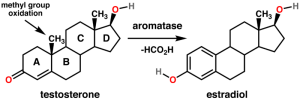Whether you have never tried an erectile dysfunction (ED) medication before or have tried them all with no success, our doctors are here to help.
Maybe you tried Viagra®, Levitra®, and/or Cialis® for erectile dysfunction treatment and when it didn’t work you gave up. The doctors at our clinics in Washington may be able to help you get back the quality of life you deserve.
If you’ve never tried ED medications before but you’re having problems then its important we review your options as well as look for potential causes of ED that may also effect your overall health.
Erectile dysfunction is a common condition occurring in men. Men with erectile dysfunction may be at increased risk for heart attacks are strokes. Thus, it is important to work at determining the cause or your erectile dysfunction as well as finding effective treatment options.

If you’ve tried Cialis® and it was not as effective as you had hoped you may get better results from a once a day Cialis® dosing at a lower dose. I have had some patients get really good results with one medication and then no results and multiple side effects with another.
Also, some research has shown that testosterone replacement therapy can improve the effectiveness of medications like Viagra®, Levitra®, and/or Cialis® but other studies have shown testosterone replacement therapy not to have a significant effect on their effectiveness.
There may be genetic factors which are not fully understood at this time that play into how effective testosterone replacement will be at helping to improve your erectile dysfunction. Testosterone therapy is NOT a cure for erectile dysfunction but we often see men with erectile dysfunction also have low testosterone.
I have had many patients see major improvements in the quality of their erections from testosterone replacement therapy. Our holistic approach to treating low testosterone may give you better results in terms of your erections than the standard once a month testosterone injection treatment that many doctors provide.
We typically provide weekly testosterone injections which provide more consistent testosterone levels with less surge and crash that the once a month testosterone injections cause. If your testosterone levels are only in the normal range for one to two weeks out of the month you may benefit more from our approach.
Another aspect of our approach to treating low testosterone that separates us from other clinics is how we “balance” the hormones. Just having more testosterone may make a huge difference in your life (if you have low testosterone to begin with) but in order to potentially limit potential side effects and increase your benefits while on testosterone therapy we monitor other important levels such as estrogen.
New research is showing the importance of estrogen in men. Many doctors never even consider checking estrogen levels in men but in my experience monitoring estrogen is essential to testosterone replacement therapy and erectile dysfunction treatment. We’re not trying to get in touch with our feminine side right?!

Conversion of Testosterone to Estrogen
Testosterone naturally converts to estrogen and that is how most of the estrogen in our bodies is made. The key is to balance the estrogen level; not shut it down or shoot it through the roof. Too much estrogen and not enough testosterone has been shown in studies to cause a sort of “leakiness”, termed venous leak, in the penis.
The leakiness from too much estrogen and not enough testosterone may cause your penis to behave like more like a balloon with a hole in it than the piece of steel you grew up with. And research has shown that men with venous leak type erectile dysfunction have higher estrogen levels.
There is another way you can get more “estrogen” in your body without making it yourself. Estrogen-like chemicals are all around you. One common source is plastic containing Bisphenol A (BPA). BPA is in most plastics like water bottles and even some dental sealants used to fill cavities. To learn more about BPA in your environment check out the Mayo Clinic’s website.
In a study where they gave BPA to rats the researchers found BPA was not good for rat erections suggesting BPA is likely not good for your erections either. Further research done on rats and rabbits showed that even when given testosterone the negative effects rabbits experienced on their erections from high estrogen levels didn’t improve. This suggests that too much estrogen decreases the potential benefits of testosterone replacement therapy. The rabbits had better erections when estrogen levels reduced and testosterone levels were increased.
Please keep in mind that even if testosterone therapy will improve your erectile dysfunction it is unlikely to be a quick fix. Some research has shown that men on testosterone replacement may not notice any improvements in their erections for up to 12 months (or never). Thus, we try to take a holistic approach when evaluating your erection problem to find the most effective treatment and also make sure we are working to identify the cause of you erection problems.
Men with obesity are at increased risk for erectile dysfunction as well as low testosterone. Long term treatment using testosterone therapy has been shown to help with weight loss and improve erectile dysfunction, as well quality of life.
Please review the questions below to help you self assess your ED. We will have you answer these same questions when you come to your initial visit at one of our clinics. Also, below the following questionnaire is a list of potential causes of ED which we will discuss when you come to your initial visit. You may also want to review our low t quiz.
The International Index of Erectile Function Questionnaire
1. How do you rate your confidence that you could get and keep an erection?
1 Very low
2 Low
3 Moderate
4 High
5 Very high
2. When you have erections with sexual stimulation, how often are your erections hard enough for penetration?
1 Almost never or never
2 A few times
3 Sometimes
4 Most times
5 Almost always or always
3. During sexual intercourse, how often are you able to maintain your erection after you have penetrated your partner?
1 Almost never or never
2 A few times
3 Sometimes
4 Most times
5 Almost always or always
4. During sexual intercourse, how difficult is it to maintain your erection to completion of intercourse?
1 Extremely difficult
2 Very difficult
3 Difficult
4 Slightly difficult
5 Not difficult
5. When you attempt sexual intercourse, how often is it satisfactory for you?
1 Almost never or never
2 A few times
3 Sometimes
4 Most times
5 Almost always or always
Add you score above to get your total score to see which of the following categories you fall in:
1-7: Severe ED
8-11: Moderate ED
12-16: Mild-moderate ED
17-21: Mild ED
22-25: No ED
Causes of Erectile Dysfunction
The following list is long but these are potential causes of erectile dysfunction that we work to rule out when helping a patient with erectile dysfunction. Several of these conditions are rare but are important to consider as potential causes. Most of these conditions can be treated medically and correcting the cause of the problem may lead to significant improvements in your erections.
Hormonal
– Low testosterone
– Hyperprolactinemia
– Hyper- and hypothyroidism
– Hyper- and hypocortisolism (Cushing’s disease etc.)
Vasculogenic
– Cardiovascular disease
– Hypertension
– Diabetes mellitus
– Hyperlipidaemia
– Smoking
– Major surgery (RP) or radiotherapy (pelvis or retroperitoneum)
Neurogenic
– Degenerative disorders (multiple sclerosis, Parkinson’s disease, multiple atrophy etc.)
– Spinal cord trauma or diseases
– Stroke
– Central nervous system tumours
– Type 1 and 2 diabetes mellitus
– Chronic renal failure
– Polyneuropathy
– Surgery (pelvis or retroperitoneum, radical prostatectomy, colorectal surgery, etc.)
Anatomical or Structural
– Hypospadias, epispedias
– Micropenis
– Congenital curvature of the penis
– Peyronie’s disease
Drug-induced
– Antihypertensives (diuretics are the most common medication causing ED)
– Antidepressants (selective serotonin reuptake inhibitors, tricyclics)
– Antipsychotics (incl. neuroleptics)
– Antiandrogens; GnRH analogues and antagonists
– Recreational drugs (alcohol, heroin, cocaine, marijuana, methadone)
Psychogenic
– Generalised type (e.g., lack of arousability and disorders of sexual intimacy)
– Situational type (e.g., partner-related, performance-related issues or due to distress)
Trauma
– Penile fracture
If your primary care doctor is unaware you are having problems with erectile dysfunction it is important to tell them. Erectile dysfunction is associated with increased risk of cardiovascular disease and you may be at increased risk of heart attack or stroke.
